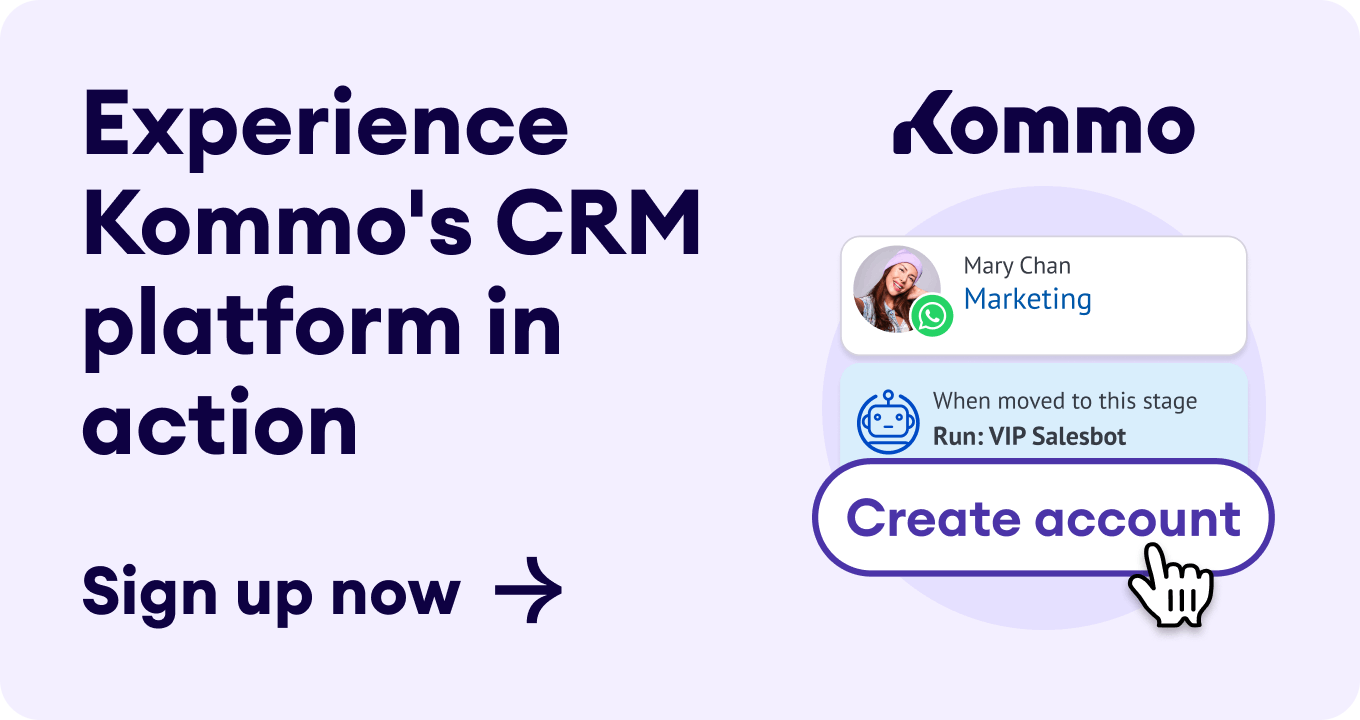
Forgot password
Check your email
We’ve emailed you instructions for resetting your password.
Don't forget to check your spam folder.
Create new password
Nicely done!
Your password has been changed succesfully.
Create your account
Sales Tips
10 Best Customer Support KPIs Your Business Should Track
5 min.

Reuben Yonatan
Contents
Generate more leads & clients
No credit card required
Share this post
X (Twitter)
Telegram
Copy link
Tags

Reuben Yonatan
Try Kommo free
Get Kommo free for 14 days
Get Kommo free for 14 days
Test drive Kommo yourself or schedule a free demo call with us
Test drive Kommo yourself or schedule a free demo call with us

